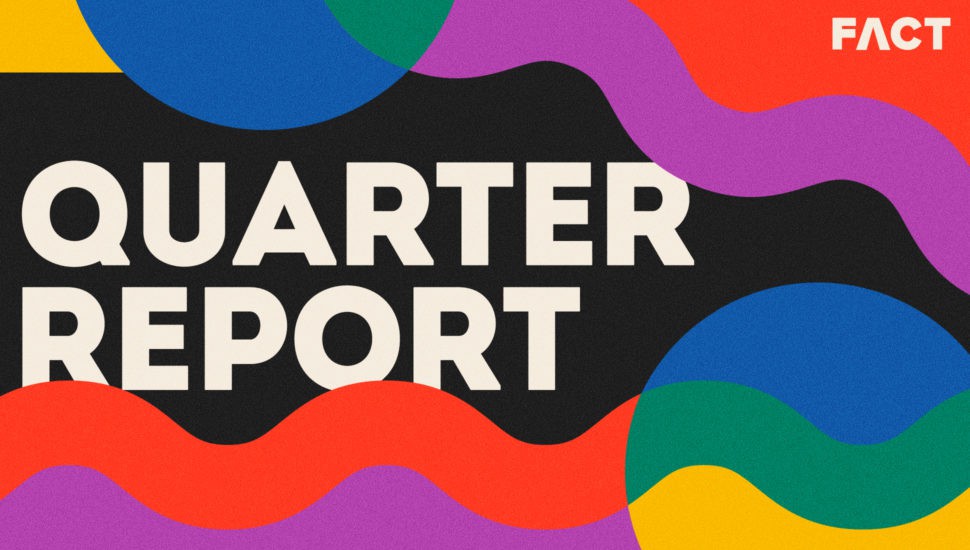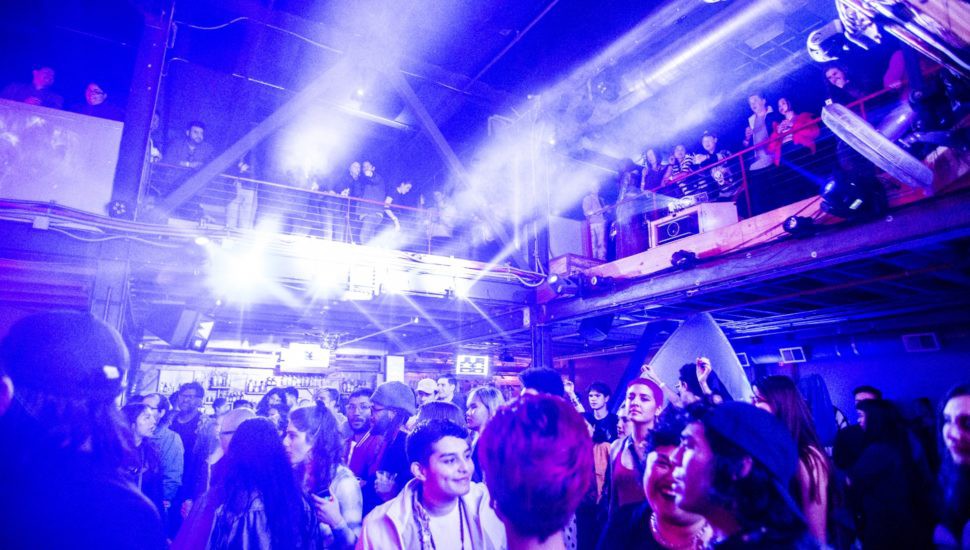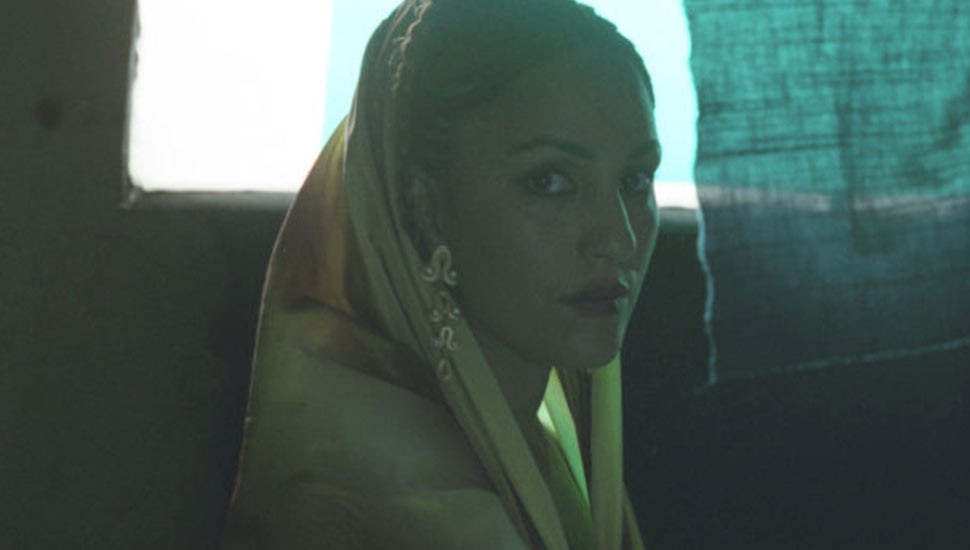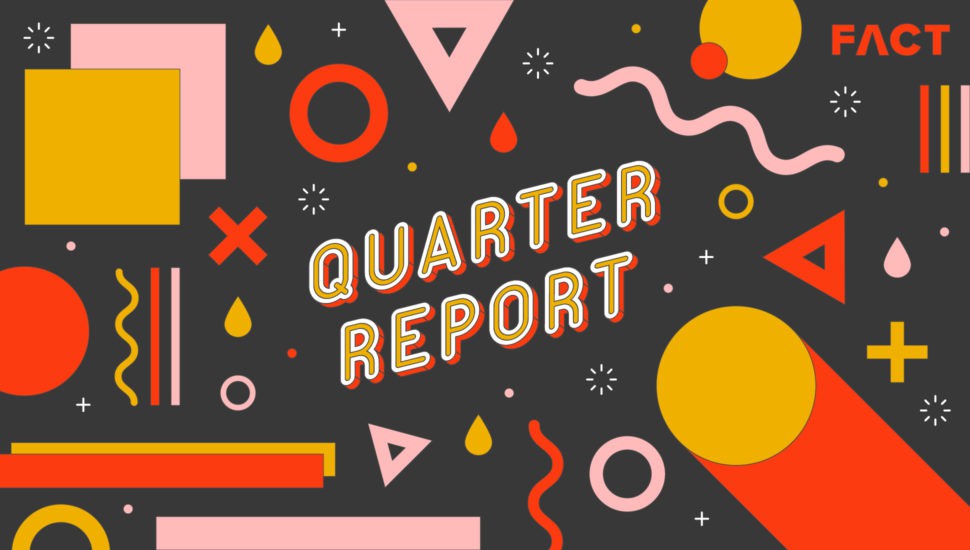From Studio to Screen: Becoming A Composer
By: Claire Lobenfeld
LAFAWNDAH Finds Her Language

Story: Claire Lobenfeld
Producer: Anoushka Seigler
Video Director: Kamil Dymek
Photography: Jameela Elfaki
“The clothes that you got for me will never fit.”
LAFAWNDAH, ‘Uniform’
Are we beyond compartmentalizing art or have we become too obsessed with categories now that we have access to erstwhile definitions and Wikipedia expertise? An artist like LAFAWNDAH makes music that demands not to be put in a box, for the listener to shirk their understanding of a modem-enabled “global” album. It wasn’t always this way. Half-Egyptian, half-Iranian, raised in Paris, and now living in London—although she’s previously lived in Los Angeles and Mexico City, among other cities—identity and culture have sometimes been an obstacle for producer-songwriter. “It sounds like I have access to the internet,” she says of the rootless origins of her first few EPs. “I don’t believe in this way of making music anymore.”
For her debut album ANCESTOR BOY, LAFAWNDAH embraced a new set of tools to express herself: find the thing that makes you want to sing and create your own work in its honor, not as its captor. “I ask myself constantly, What is mine? What can I honor, what can I take? What can I not take? What is something that I just found cool or just inspired me? How and when is it respectful? Where is your line?” she says. Some of the things that did belong to her were decades-old self-described ghosts that manifested from the Spice Girls to the Iranian folk music of her youth to Sade. Like Sade or Björk or Kate Bush, there’s an unspeakable personal topography to her music — easily misunderstood in a time when contexts are not readily present and disinformation equally abounds.
“I’m the legacy of all the one-offs in the world, musical orphans,” she says. “That in itself forms a family and I feel like I’m part of that family, not someone with a clear existing lineage of people.” Transcendent sound experimenter Scott Walker is one of these artists. His influence is an heirloom for music’s most eclectic thinkers, including Thom Yorke and the late David Bowie, as well as LAFAWNDAH. For FACT’s RE:COVER series, in which an artist performs a beloved song through their own lens, LAFAWNDAH transformed a studio at The Store X, 180 The Strand chose Walker’s ‘Bouncer See Bouncer’ and mutated it into a siren call. It was shot on March 7. Walker died two weeks later on March 22. “The timing of his passing left me with a strange taste that I still have a hard time understanding,” LAFAWNDAH says. “He was a once in a lifetime artist who was on a mission. We need more of them now. More than ever.”
Why now for a full-length album?
It takes a lot of time to make a first album. I love telling stories and I love having the space to unfold. You have more space to say more stories and I’ve felt very ready for that, even when I did the second EP, I think that EPs are more like a way to create the palette and backbone, they were the tools [to know] what it is that I do, how it is that I sound. With the second EP, I felt that I was on to something, that I was interested in. When I was doing it, I knew it was going to be the appetizer for the thing right after. It was very clear to me what that was, that I was on some kind of route that I needed to unfold. It’s been a few years that I’ve been in this mindset. EPs have been tools for experimenting. When I started working on the [sound of the] album, I just felt like I was standing on my own feet and it was my feet and not someone else’s and I could just walk.
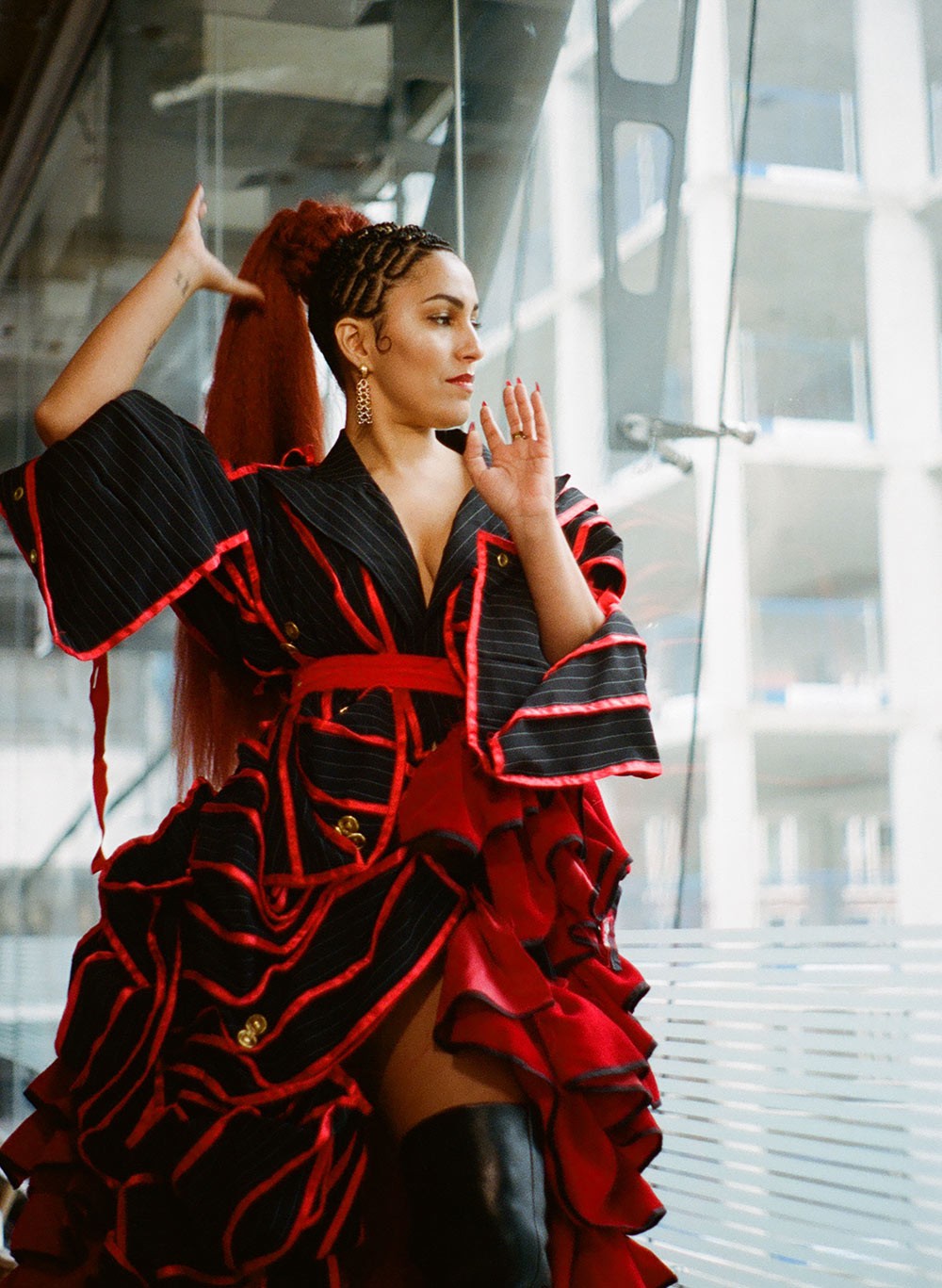
I went to school for writing fiction and that was ten years ago. I just started doing it again. I tried to write a novel and I kept starting and throwing it out and writing 70 new pages and then throwing it out again. Then I wrote one short story and knew it had the voice and the landscape that I wanted to explore. I wanted to know what are the pathways deeper into this, or what are other ways of traveling toward this. So I know exactly what you mean.
I needed my alphabet. It was very clear I needed my own alphabet. That’s not to say it’s set in stone and I hope that I’ll speak many language. I was just starting making music, then too, so it wouldn’t have been sense then for me to tell one story or the story which I think an album is—I don’t think an EP is a full story. I think that’s the answer: I felt ready when I had the language.
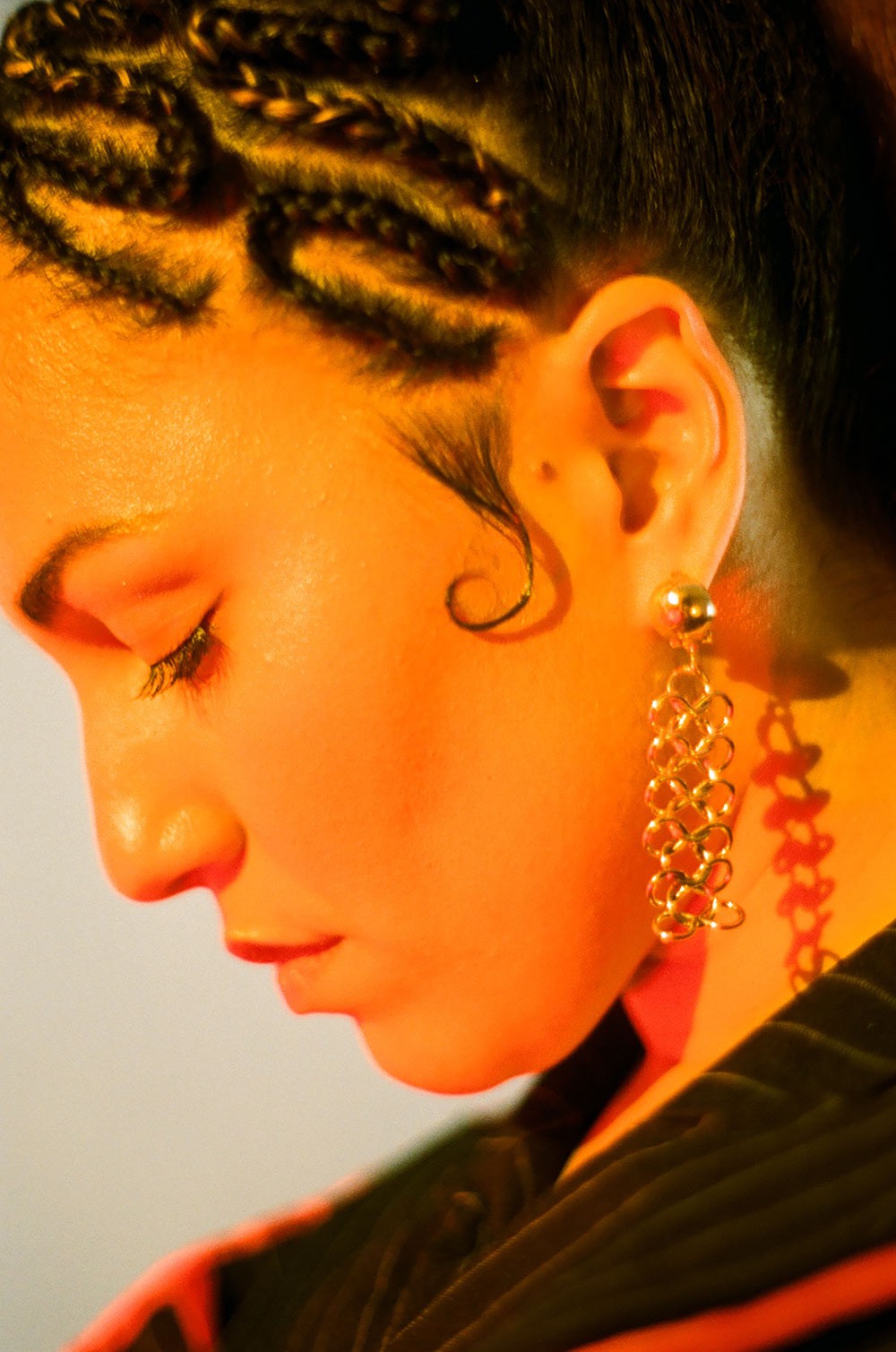
What informed the language or the alphabet?
Geinoh Yamashirogumi, who did the score for Akira, kind of swung my world and and I’m forever grateful to have stumbled upon this music. They’ve traveled to many places in the world and, in a very Japanese way, learned and gained a lot of knowledge in particular musics from these places and come back to Japan and reproduced it through their own lens. They’re teachers and doctors and physicians and they also have a branch of research about biology and neurology—a total art situation. That was my food for the album.
Flamenco is really important to me. It’s a big influence on the album in terms of conduct. I love things that are very syncratic and flamenco is claimed as a national thing by Spain but it also comes from North Africa, it comes from Iran, it comes from India. It’s the music that represents to me the reality of humanity in the sense. Iranians have a strange relationship to it because it’s so familiar to us: the intervals, the conduct, the strength, the involvement of women, musically its sound comes from Persia and then it passed through Spain. It just sounds like the history of humanity and nobody can claim that. Nation-states fucked us all over [laughs].
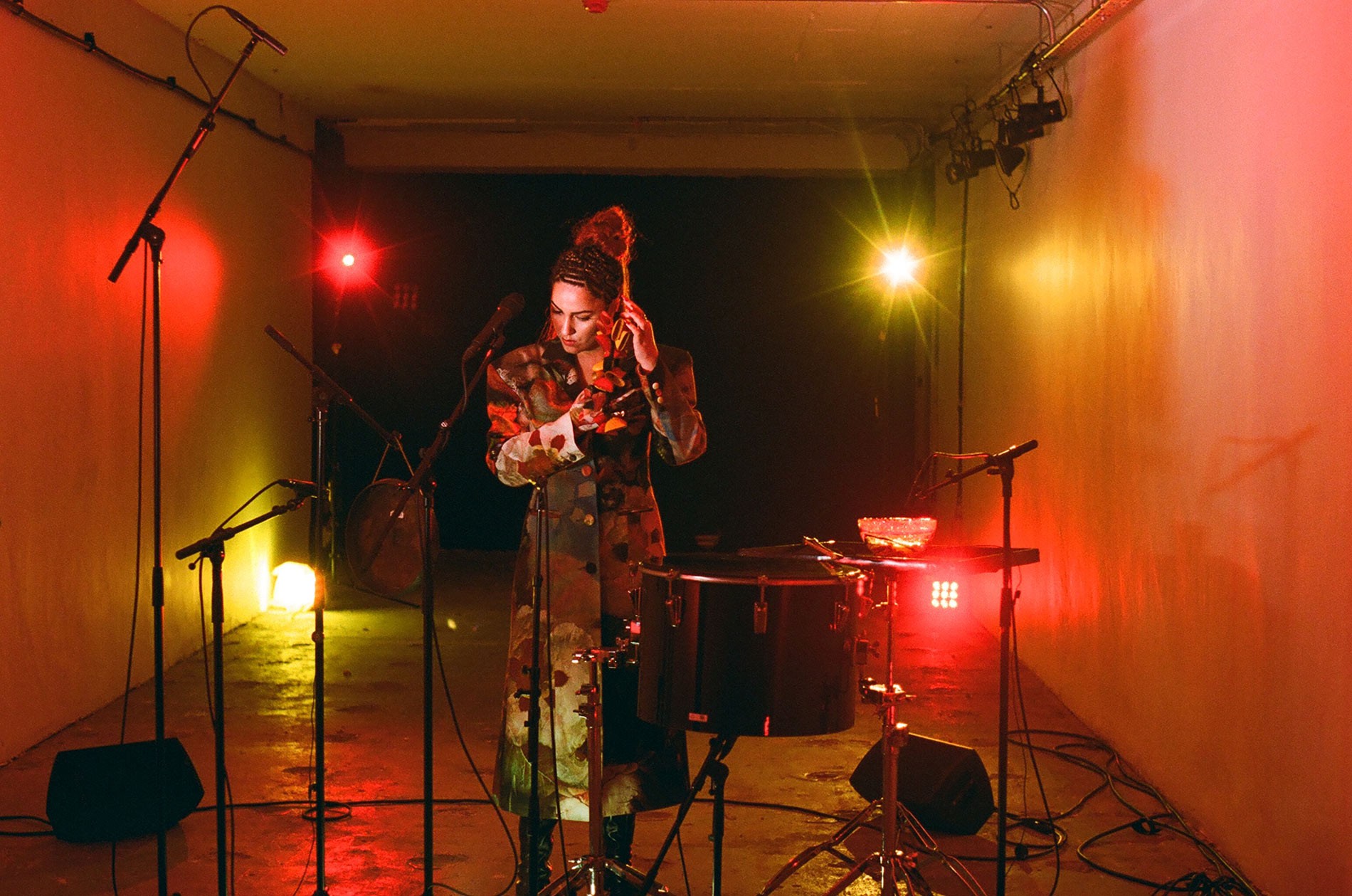
You’re often framed, as an artist, by the fact that you’ve lived so many places around the world.
I’m not even interested when people are like, “It’s so crazy that you’ve lived there and then moved there.” I don’t know why that sounds weird or that sounds exotic or it sounds special. That’s your story too but you might just not know about it because [movement] is not part of [your generation of your family’s story] but there is nothing special about it, in a way.
Which is why something like flamenco resonates — it’s about a lineage, not scrapbooking.
It’s real shit, it’s not globalization. I don’t get my knowledge through the internet. I’m not like, “Oh, I love this thing, I’m gonna download a sample pack.” I had no clarity about this when I made my first EP. I had fear about where I was coming from and I had repressed French culture. I had no idea I was even brown. I let a lot of things slip because I didn’t know. A lot of [my explanations] when I started making music was about all these travels, “She’s lived everywhere and [her music] sounds global.” It sounded disembodied. It sounded like I have access to the internet. I ask myself constantly, What is mine? What can I honor, what can I take? What can I not take? What is something that I just found cool or just inspired me? Where is your line? That’s always in mind. I have a song about it on the album, the song ‘Tourist’ which is just about someone who takes what they want. It’s something I’m very sensitive about.
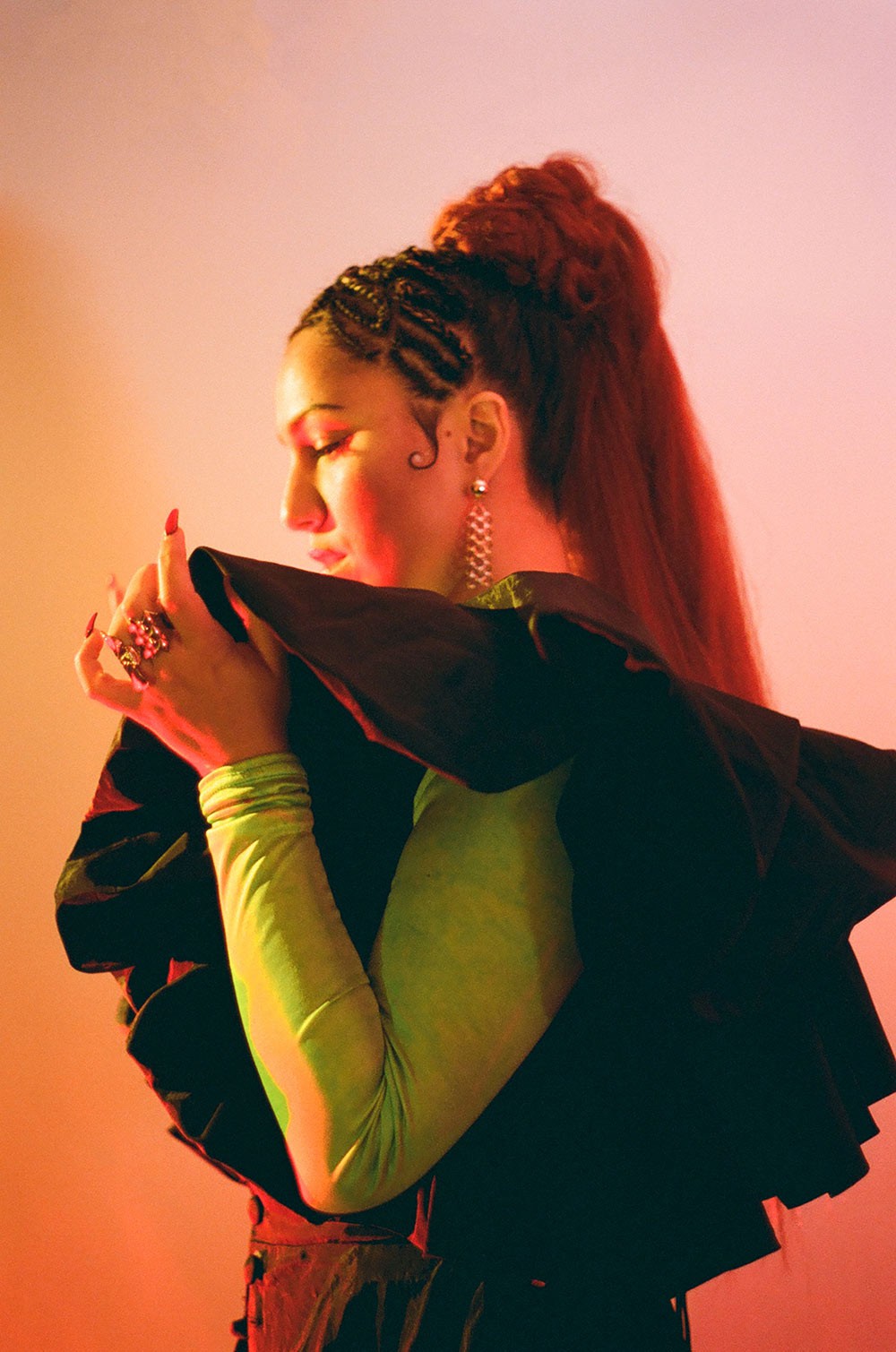
What is your relationship to the five senses when you’re composing your music? It has so many textures and sounds so environmental. Of course you’re thinking about sound but does anything like feel or image influence you?
I never thought about it that way but I definitely think about touch because I think about [the music] in physical ways: what feels round, what feels sharp. I think about knives, I think about colors. The visual sometimes come before the music. My first EP, which was produced by Emily King, was based on the first five minutes of this movie called La Ciénaga, the first movie by the filmmaker Lucrecia Martel from Argentina. I needed to understand what is going on [in the film] by making music for it. There are a lot of movies or film scenes or moments that make me want to make music.
How often are you compelled to make music by other art or the desire to process other art?
Part of the process of making music for me is helping me understand so many things. The process is: I have no fucking idea. It has to do with things I’m in contact with but with so many parts of my own life. It helps me unpack and understand and heal but at the end of the process, I hope that I’m gaining clarity and I think that the album is also aiming to give to tools or give clarity to people who can connect with what I’m saying. It’s also an excuse to sit down and spend time with something. These are my tools. In talking about this album, I’ve used the word “clarity” a lot and I’ve never really used it before. I think that there’s a clear gesture about wanting to be clear with myself so I can be clear with people on the receiving end and I don’t think I’d ever really about it before like that. If I’m using music as a tool for communication, I have to be the first one to gain the clarity so I can communicate it better. I was in a very different mindset when [I first saw La Ciénaga] but it’s been the same process when I don’t get something or I’m intrigued or I want to dig and this is why there’s music that needs to be made around it.
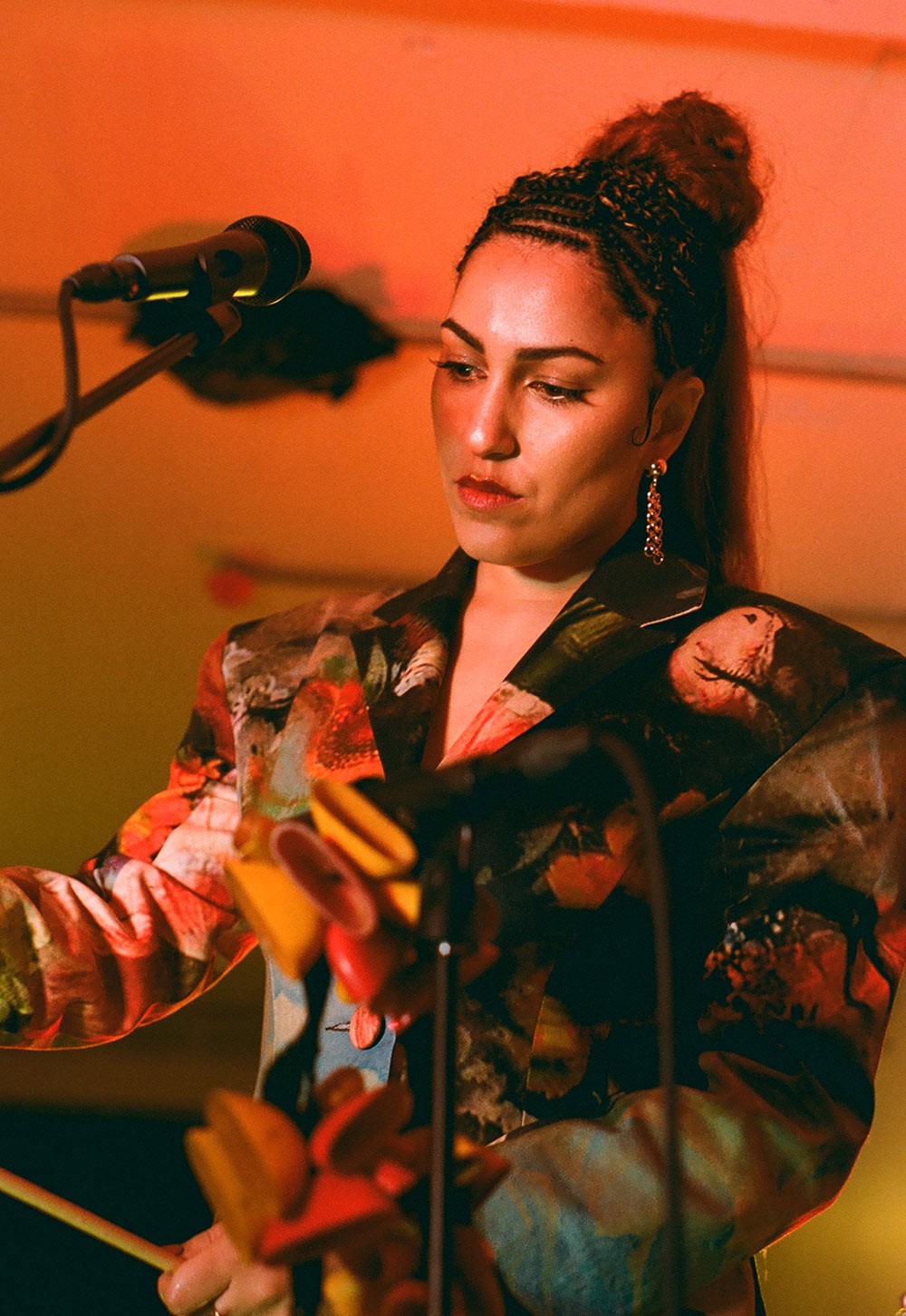
When did you first realize that music was one of the ways you wanted to communicate?
It’s not like I was doing it and then I realized it was something I wanted to do, I started because I needed to communicate. That was at the core. I’ve never done it casually. I studied classical music for 12 years when I was a kid and then music kind of disappeared from myself and came back much later, after I had a whole career and had a good life and making money with something that I thought I loved and I had to disrupt it and tell myself it wasn’t aligned [with what I wanted]. It felt like a calling or something. I don’t mean to sound corny but it was very sudden and there was no context for it for me. I wasn’t hanging out with musicians. I didn’t have a band. I was living in Mexico at the time and when I made that decision, I started a punk band. It all happened at the same time, so it was never about a love of making music or singing and wanting to do that for a living. It felt vital because I was very isolated and it was very clear that it was about being less alone. It was the only way to reach out that I had, and I needed to reach out. Now that I know the main motive is communication, I don’t feel defined by making music. I’m not defined by being a musician, I’m defined by the need to communicate to a larger group than if I was doing anything else. Music is just a way and there will be many other ways in my lifetime. I don’t feel defined by being a musician at all.
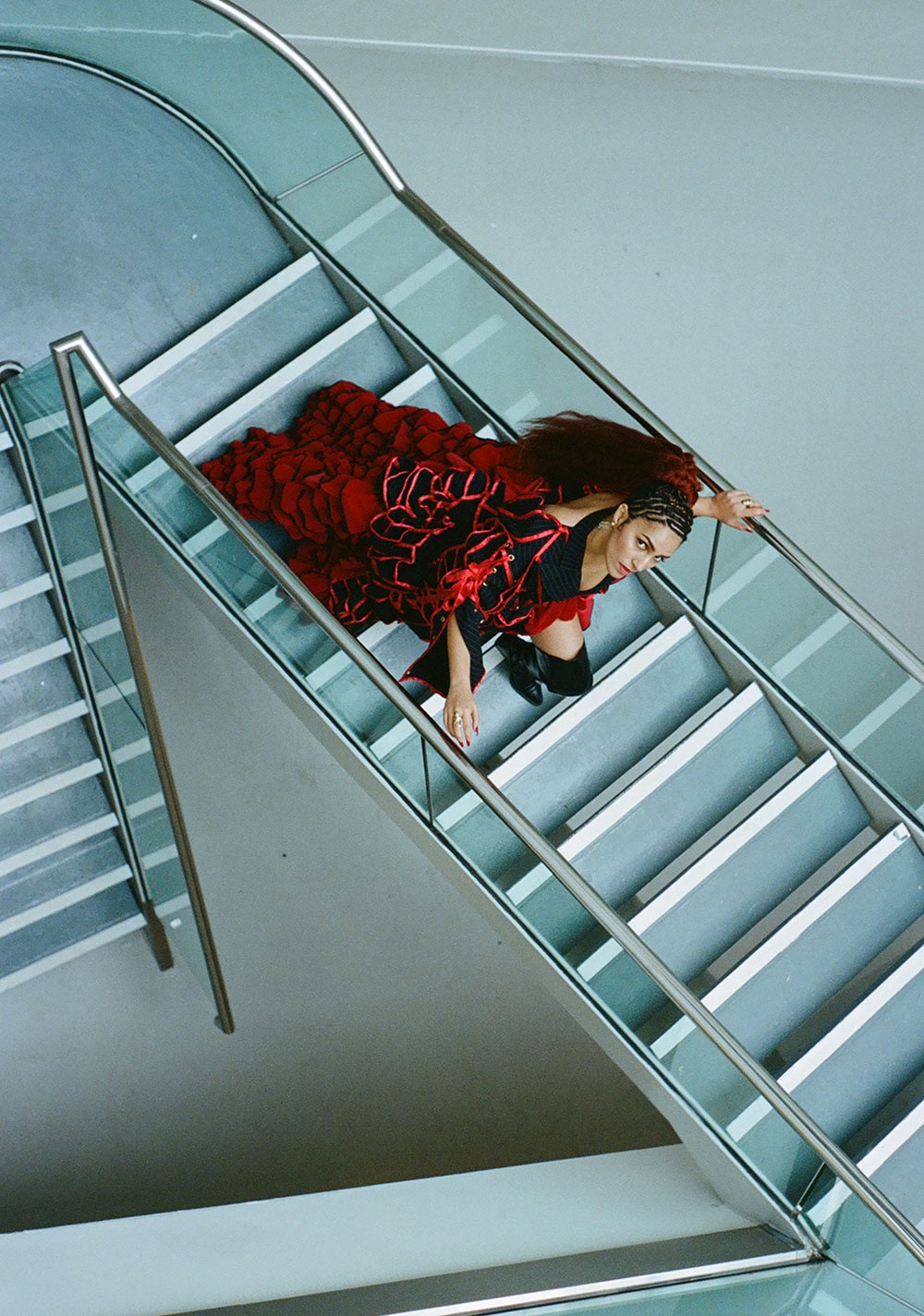
Sound & Mixing: Tristan Finn
Hair: Afi Emily Attipoe
Makeup: Rina O'Sullivan
Technical Director: Pawel Ptak
Production Assistant: Ceili McGeever
Camera Operator: Mikolaj Bakalarz
